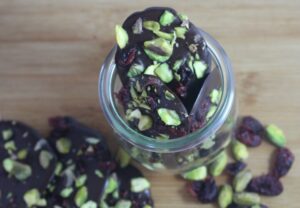Many Brits have reported that they’ve gained weight during lockdown and with gyms and fitness classes remaining firmly closed, the big questions is ‘How can I lose weight safely and quickly?’ TV Dr and diet expert, Dr Michael Mosley debunks the most popular diet myths and answers the most commonly asked questions surrounding weight loss.
I need to lose weight quickly but I’ve read that it can be dangerous to do so. Is this true?
“There is a widespread belief that if you lose weight fast then you will put it back on even faster. But is it really true? In a review article titled ‘Myths, Presumptions and Facts about Obesity’ in the prestigious medical journal, The New England Journal of Medicine, researchers put this claim firmly into the ‘myths’ category.
After looking at numerous studies which have compared rapid with slow and steady weight loss, they concluded that you would do better to lose it quickly rather than slowly.
A recent Australian study published in The Lancet backs up these claims. Researchers took 200 obese volunteers and put half of them on a low-calorie diet (less than 800 calories a day) for 12 weeks.
The other half were asked to cut their calories by 500 a day, enough to lose around a pound a week. They were asked to do this for 36 weeks.
According to Katrina Purcell, a dietician who led the study: “There was a very high drop-out rate among the steady dieters: less than half made it to the end of the 36 weeks.
Most said they gave up because they were frustrated by the slow rate of progress. By comparison, more than 80 per cent of those in the rapid weight loss programme stuck to it. They were then followed for three years. Although both groups put some weight back on, the amounts were similar.”
She added: “Our results show that achieving a weight loss target is more likely and drop-out is lower, if losing weight is done quickly.”
Rapid weight loss isn’t suitable for everyone and if you do decide to lose weight fast you have to make sure you have the right balance of nutrients in your diet.
I’ve heard the Keto diet is good for rapid weight loss? Is this the case or is it a fad diet?
“The original Keto, a very low carb diet, can be a great way to lose weight, but all the long term studies show that it is a tough diet to stick to. In studies that run for more than six months, the drop-out rate is very high.
I would worry that because this diet is so low in carbs that you will eat very little in the way of fibre, which will have a negative impact on your microbiome, the microbes that live in your gut and are so important for your health.
The Keto 2.0 allows for more carbs and emphasises the importance of eating healthier, plant-based fats. But there are no long-term studies yet done showing that it is any healthier or more sustainable.”
Is intermittent fasting safe and does it really work?
“I recommend intermittent fasting for anyone who needs to lose weight quickly. The idea that fasting ‘slows your metabolism’ is a myth. Under conditions of marked energy deficit – 800 calories per day or less – not only do you simply lose weight by eating fewer calories, but your body responds to the stress of fasting by enhancing hormone function to facilitate weight loss and burn fat for energy.
Short-term fasting can lead to several changes in the body that make fat burning easier. This includes reduced insulin, increased growth hormone, enhanced epinephrine signalling and a small boost in metabolism.
According to a 2014 review of the scientific literature, intermittent fasting can cause weight loss of 3-8% over 3-24 weeks. Not only this – but people lost 4-7% of their waist circumference as well – indicating a large loss of the harmful belly fat in the abdominal cavity, strongly linked to chronic disease.”
Is an 800 calorie diet the key to losing weight quickly? Will I find it hard to stick to?
“Most rapid weight loss studies are now based on 800 calories a day, which is high enough to be sustainable and give the nutrients you need, and low enough to lead to rapid weight loss and other beneficial health changes.
You might worry about getting hungry but most people who do the Fast 800 diet say that within a very short time your hunger passes. Rapid weight loss encourages your body to switch over to fat burning. It also reduces insulin levels, increases growth hormone and boosts levels of a hormone called BDNF in the brain, which helps improve your mood.”
The Fast 800 as a weight loss plan is based on cutting-edge medical research. It works! It’s not so much a diet, as a bespoke weight loss planner, designed to fit around your own needs. It embraces time-restricted eating and the Mediterranean principles of consuming a diet rich in healthy proteins and vegetables and lower in carbs.
Healthy fats such as olive oil and nuts are encouraged and the occasional glass of wine or bite of dark chocolate is allowed, so that people eat well, remain sated and don’t feel deprived. It comprises of three ‘tracks’ or options and is combined with advice on planning, exercise and mindfulness.
1. The Very Fast 800, a 12-week very low calorie (800 per day) plan for rapid weight loss
2. The New 5:2, which counters insulin resistance with regular two-day fasting regimes, where you consume two meals with a total of 800 calories per day.
3. The Way of Life, which works either as a great maintenance plan for those who have achieved their goals, or as an entry-level plan for those considering their next options
Life is about much, much more than calorie counting. So why condemn yourself to years of struggling with pointless weight-loss regimes, when a focused and structured intervention can switch your cravings off for life?
I’ve read that eating ‘little and often’ is better than three square meals a day. Is this true?
“A common belief is that if you spread out your food into lots of small meals this will increase your metabolic rate, keep you less hungry and help you lose weight. That’s not true. In a recent study, researchers at the Institute for Clinical and Experimental Medicine in Prague decided to test this idea by feeding two groups meals with the same number of calories but taken as either two or six meals a day.
Each group ate around 1,700 calories a day. Despite eating the same number of calories the ‘two meals a day’ group lost, on average, 1.4kg more than the snackers and about 1.5inches more from around their waists. They also felt more satisfied and less hungry than those eating little and often.”
I’ve struggled to stick to previous diets because I give in to hunger. How can I lose weight but avoid being hungry?
“Have you ever wondered why it is so hard, once you have started eating junk food, to stop? Just as the right foods help you to feel fuller for longer, the wrong foods can do the exact reverse, throwing our brains into a cascade of craving. Abundant, energy-dense, hyper-palatable foods are an incredibly recent arrival in our food environment. In three million years of human evolution, nothing has prepared us for it.
In consequence, our brains are completely unequipped to cope with the intense reward that such food delivers, and switch to ‘more-and-more’ mode after the first bite, especially if we take that bite when we are hungry.
Junk food is trap food, designed to make you lose money and gain pounds. As a guide, the more aggressively it is advertised, the worse it probably is for you. If you want to feel fuller for longer, keep away from it.
When you’re out and about, bring a packed lunch; likewise, if you have to keep a stock of high-calorie snacks in the house for children, keep it locked up and away from the kitchen. To feel fuller for longer, then, take a few simple steps – choose more of the right foods – especially good fats and fibre – avoid the wrong foods, eat protein, and eat it early in the day.
Like happiness, fullness really is a gut feeling. If you’re experiencing cravings for sweet food, then try these healthy Chocolate, pistachio and cranberry pennies from The Fast 800 online programme (www.thefast800.com)”

Ingredients
100g plain dark chocolate (around 85% cocoa solids)
25g unsalted, shelled raw pistachios
25g cranberries
Method
1. Line a medium sized baking tray with baking paper.
2. On high heat, bring a medium sized saucepan of water to boil.
3. Break chocolate into pieces and place in heatproof bowl. Reduce heat of saucepan to low and place bowl with chocolate on top of saucepan. Stir chocolate while it is melting.
4. After approximately 5 minutes, once chocolate has melted, carefully remove from heat.
5. Using a teaspoon, pour individual spoonfuls of melted chocolate onto baking tray. Scatter pistachios and cranberries on top of each melted chocolate piece.
6. Place in fridge and leave to set for a 2-3 hours. Once set use a knife to gently remove pennies from baking paper and place in container. Can be stored for up to a week.
The Fast 800 is an innovative approach to healthy living and weight loss based on the latest scientific research such as these studies. The Fast 800 online programme (www.thefast800.com) has been developed in conjunction with Dr. Michael Mosley for those that need more support and guidance for achieving long lasting health, incorporating the 5:2 diet, intermittent fasting and a lower-carb med style diet. It offers you 24/7 professional advice and support, and also features tailored recipes, menus, shopping lists, a library of mindfulness and HITT exercise programmes. This tailored programme lasts 12 weeks.





